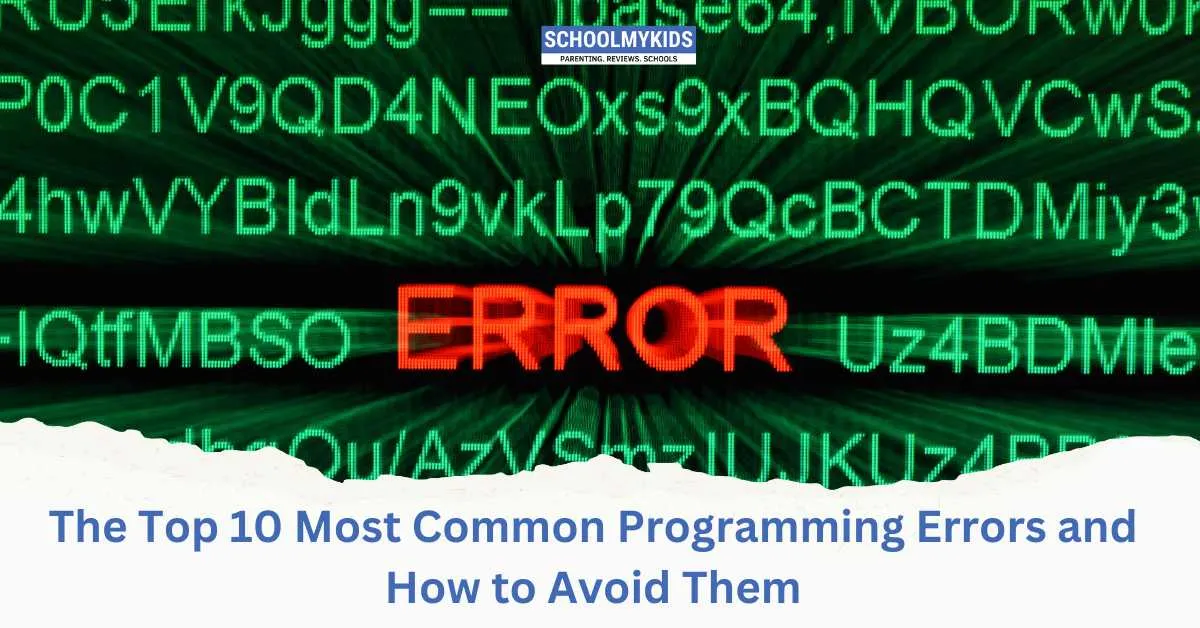Programming is a process that requires precision, logic, and attention to detail. Even experienced programmers can fall prey to common mistakes that lead to bugs, errors, or unexpected behavior in their code. Understanding these common programming errors can help you avoid them and improve your coding practices. Here, we list the top 10 most common programming errors and tips on how to avoid them.
1. Syntax Errors
Description: Syntax errors occur when the programmer doesn’t follow the rules of the language’s grammar, such as missing semicolons, unmatched parentheses, or incorrect indentation.
How to Avoid: Use a reliable Integrated Development Environment (IDE) or code editor that highlights syntax errors in real-time. Most modern IDEs provide syntax checking and suggest corrections.
2. Null Pointer Exceptions
Description: A null pointer exception occurs when a program tries to access an object or variable that is set to null, leading to runtime crashes.
How to Avoid: Always check for null before dereferencing an object. Use optional types where applicable, such as Optional in Java or nullable types in Kotlin.
3. Off-By-One Errors (OBOE)
Description: These errors typically occur in loops when iterating one time too many or one time too few, resulting in incorrect indexing or missing elements.
How to Avoid: Use clear, consistent loop boundaries. Understanding whether you need inclusive or exclusive ranges can help prevent these errors. Practice using functions like .length or .size in iterations to avoid mistakes.
4. Infinite Loops
Description: Infinite loops occur when the loop's exit condition is never satisfied, causing the program to run indefinitely.
How to Avoid: Make sure your loop condition changes in every iteration to meet the exit criteria. Test loops carefully and include break conditions where needed.
5. Mismatched Data Types
Description: Assigning a value to a variable of an incompatible type can lead to errors, such as trying to add an integer to a string.
How to Avoid: Use strong typing where applicable, and pay close attention to type conversion. Modern languages like TypeScript or Java enforce stricter type checking to reduce these errors.
6. Resource Leaks
Description: Forgetting to close resources like file handlers, database connections, or network sockets can lead to memory leaks and other resource exhaustion issues.
How to Avoid: Use try-with-resources (Java) or similar constructs that automatically close resources when no longer needed. Ensure every resource allocation has a corresponding deallocation.
7. Incorrect Operator Precedence
Description: Misunderstanding operator precedence can lead to logic errors. For instance, the expression 3 + 5 * 2might yield an unexpected result if precedence isn’t considered.
How to Avoid: Use parentheses to make operator precedence explicit, ensuring that expressions are evaluated in the intended order.
8. Hardcoding Values
Description: Hardcoding involves embedding constant values directly into the code, making it difficult to modify and maintain.
How to Avoid: Use constants, configuration files, or environment variables instead of hardcoding values. This makes your code more flexible, readable, and easier to maintain.
9. Neglecting Error Handling
Description: Failure to properly handle exceptions and errors can lead to unpredictable behavior and crashes. This often results in code that is brittle and unreliable.
How to Avoid: Always use proper error-handling techniques. Catch exceptions and handle them gracefully, providing meaningful error messages or alternative paths when things go wrong.
10. Failing to Test Properly
Description: Writing code without proper testing can result in undetected bugs and faulty functionality. This is a common mistake, especially for beginners.
How to Avoid: Write unit tests and integration tests. Follow test-driven development (TDD) where feasible. Automated testing tools can help ensure coverage and reliability.
Conclusion
Programming errors are an inevitable part of the development process, but understanding and anticipating them can help you avoid them more effectively. By practicing good coding habits, leveraging modern development tools, and emphasizing testing and resource management, you can significantly reduce the chances of making these common mistakes. Remember, the best way to learn is through practice, and even the most seasoned developers continuously learn from their errors.








Be the first one to comment on this story.